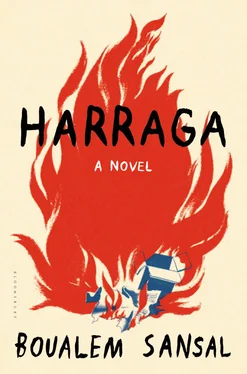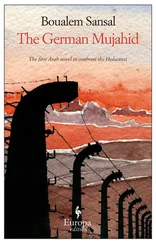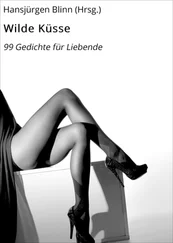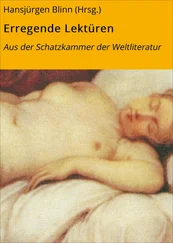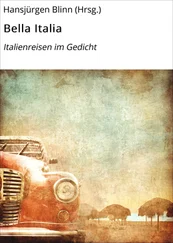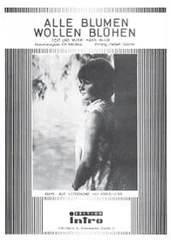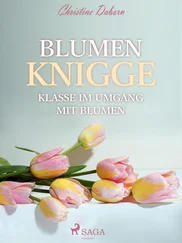The inscription infuriated Papa. ‘An ass is an ass, even if he is a distant cousin of the king of the jungle!’ he said. He was thinking about politics. Papa liked to make vague pronouncements: ‘The worm is already in the apple,’ he would mutter sententiously when Maman reminded him that the ‘ass’ had been toppled years before and the man who toppled him was no more likely to prevail in heaven. Louiza and I were young at the time, we found adult conversations boring, at that age other people don’t matter. The only yoke we knew was that of our parents, the only ingratitude that of the neighbourhood trollops.
No one visits the gardens, I said, but we arrived to find milling crowds on every path and trail and even the once sacrosanct parterres and conservatories were swarming with hordes of people so anonymous we passed without registering them, terrified pensioners plodding along in faltering groups, children and beggars dashing past, legions of wily street hawkers selling snacks, single cigarettes, digital watches, Islamic textbooks, aromatic incense (and other types of resin), posters of Bin Laden, Bouteflika, Zarqawi, Saddam, the Terminator, Zinedine Zidane, John Wayne, Madonna, Lara Croft, Mickey Mouse, Jean-Paul Belmondo, Bruce Lee, Benflis, Umm Kulthum and I don’t know who all, it was a souk , there was something for everyone. The trees in the garden are afflicted by leprosy or maybe just by old age. The same goes for the shrubs and the crumbling arbours. Perhaps it’s the drought, Algiers is in the anhydrous phase of its climatic cycles, there is no water, the air is fetid. One by one the zoo animals died off. Some burrowed deep trying to find water, the carnivores devoured each other before they expired, those few that remain are afflicted by the blind staggers. I remembered a newspaper publishing a letter from a man so outraged by the park authorities’ neglect he had taken to watering the poor dying creatures himself. The joker called it a crime against humanity. It’s not exactly how I would have put it, since there is a danger of contamination between that idea and an underlying one. Every morning, he would make his rounds with his jerry can, going from cage to cage, giving water to each according to its needs. Exhausted by the task, the man appealed to people through the pages of his favourite newspaper. I don’t know how many responded to his plea, but chronic neglect has certainly contributed to the carnage: the place has an air of decline that is noxious to sensitive souls. Nothing saddens the eye like rust and decay and I have to admit the garden bears its mark, as does Algeria, a Third World country chasing its tail: these are the signs, the half-finished, the moribund, the half-forgotten, the endless restrictions, the sporadic bouts of madness. On this path, time collapses into nothing, space contracts and life is a self-evident abdication. Thankfully, great suffering carries within it its own antidote: fatalism — which offers many reasons to die in the shadows, with no regrets, without demanding justice.
How have we managed to live surrounded by so little grandeur, so little clarity? I wonder.
I gave the order to retreat. To stay too long here would finish us off. Under the arch of the monumental gates, Chérifa threw a tantrum that knocked me for six: ‘Why did we come here?’ ‘We’re just taking a stroll,’ I replied, fingers crossed. ‘Just over there is the Museum of Antiquities and Fine Art, you’ll see it’s educa—… it’s fun.’ Seen from without, the building is as chipped and peeling as a leper colony, but to hell with outward appearance, the interior might well be magnificent.
As indeed it was. Though to realise that, you had to have eyes to see, something Chérifa, from the outset, stubbornly refused to do. Four thousand years of beauty, of unfathomable mysteries harmoniously cohabiting beneath dizzyingly high ceilings. They seemed to eye us scornfully as if to say ‘What’s that doing here?’ We felt insignificant, ugly, obtuse, in a word humiliated by the outmoded and inefficient ideas swirling in our heads. I saw Chérifa become rigid. At least she felt intimidated; that was a start. The vast entrance hall of stone and marble in the flamboyant Louis-Philippe style cannot but seem overwhelming to people like us who live in dark, sweltering anthills. Then, suddenly, in her eyes I saw the question that would cut my legs from under me and force me to abandon my tutoring: ‘So what did we come in here for?’
The spell was broken.
Heads bowed, we traipsed morosely through centuries and civilisations and nothing jumped out, nothing forced us to ask the crucial question: ‘What is that doing here?’ The galleries were deserted, they told of superannuated futility, of soullessness, of banishment. The paintings, the statues, the objets d’art , the gemstones, the engravings looked like antiquated curios arranged by pen-pushers exhausted by routine. The beautiful is beautiful only when one knows. We walked past without noticing and found ourselves outside in the sunshine, depressed, dazzled, tired, disappointed.
All this is another world to Chérifa, a bizarre, artificial world assembled from the flea market of past centuries, past millennia. She stared at everything wide-eyed as an owl woken by a sudden commotion. I wanted her to understand that we had not magically appeared from an Aladdin’s lamp or some sleight-of-hand in a laboratory, that we were the product of these things that surrounded us, but no words can pierce a mental block. Chérifa has much to see if she is to make headway and I cannot do it for her. It is for her to decide.
A hasty change of plan — we weave our way through the streets according to the code, prevaricating with the imponderable. Everything else — the Bardo Museum, the great mosques, the Ketchaoua mosque and the Jewish one, the Cathédrale du Sacré-Coeur, the basilica of Notre Dame d’Afrique, the citadel, the Palace of the Raïs, the Villa du Centenaire, the Cemetery of the Two Princesses, the Tomb of the Christian, the Roman ruins of Tipaza and the rest — will have to wait for another time, if one day the wind should change.
We wolfed down pizza in a ramshackle hovel no worse than the next, swigged lemonade from the bottle and headed home by bus having abandoned Mourad — who thought he spotted some old comrades in arms — in a bar that seemed somewhat mysterious through the thick pall of smoke.
I felt Chérifa draw away. She looked at me as though I were a stranger or a relative in whom she’d just discovered some bizarre vice. It was at that moment that I truly understood the meaning of despair.
Education may well be salvation, but it is also the thing that most clearly divides people.
Had it happened, this thing that was inevitable? This is what I asked myself as I turned the key in the door. Was this merely foreboding? No, there was a clear sign: a thick, heavy silence. That was unlike Chérifa, who surrounds herself with noise, all day long she has the TV, the radio, the record player or the CD player turned up so loud the walls are queasy and my poor ears are assailed. Ever since she showed up, I’ve forgotten the meaning of silence. The silence that greeted me now was heavy and impenetrable, but it was also unusual, deafening, glacial. I ran inside, I shouted, I screamed. I stopped and then I ran again, I ran faster, screaming fit to burst my lungs: ‘Chérifaaaaa… Chérifaaaa… Chérifaa… Chérifa… Chéri…!’ Then I fell to my knees… I don’t remember where. I don’t know how, but I found myself on the sofa, head in my hands, trembling and feverish. I felt a terrible pain as, on the horizon, I saw a whole tsunami of pain bearing down on me.
Papa, Maman and Yacine are long gone, God called them to Himself, then that idiot Sofiane let himself be caught up in his own delusions, now it is Chérifa’s turn. She is nothing to me, just a stray chick who turned up uninvited, but the love I feel for her has made her my little sister, my daughter, my baby. What have I done to deserve this?
Читать дальше
